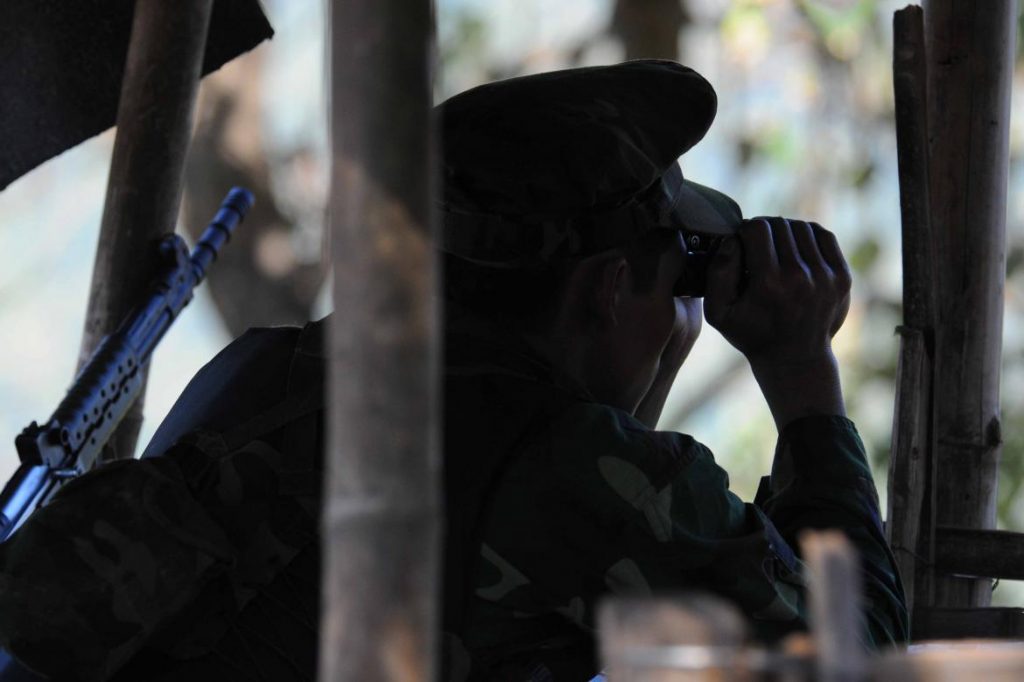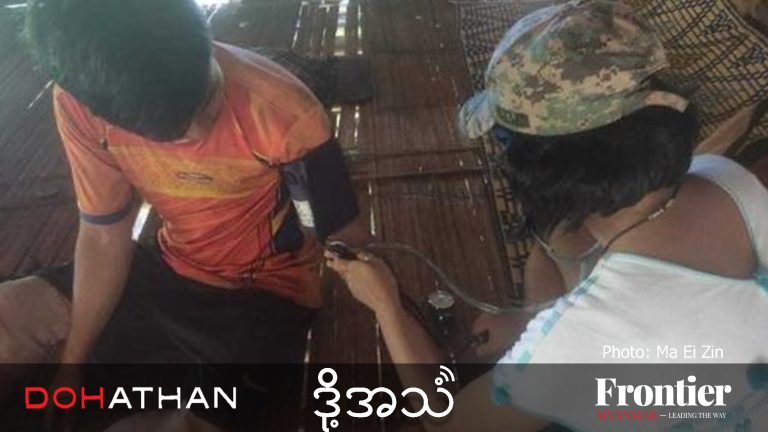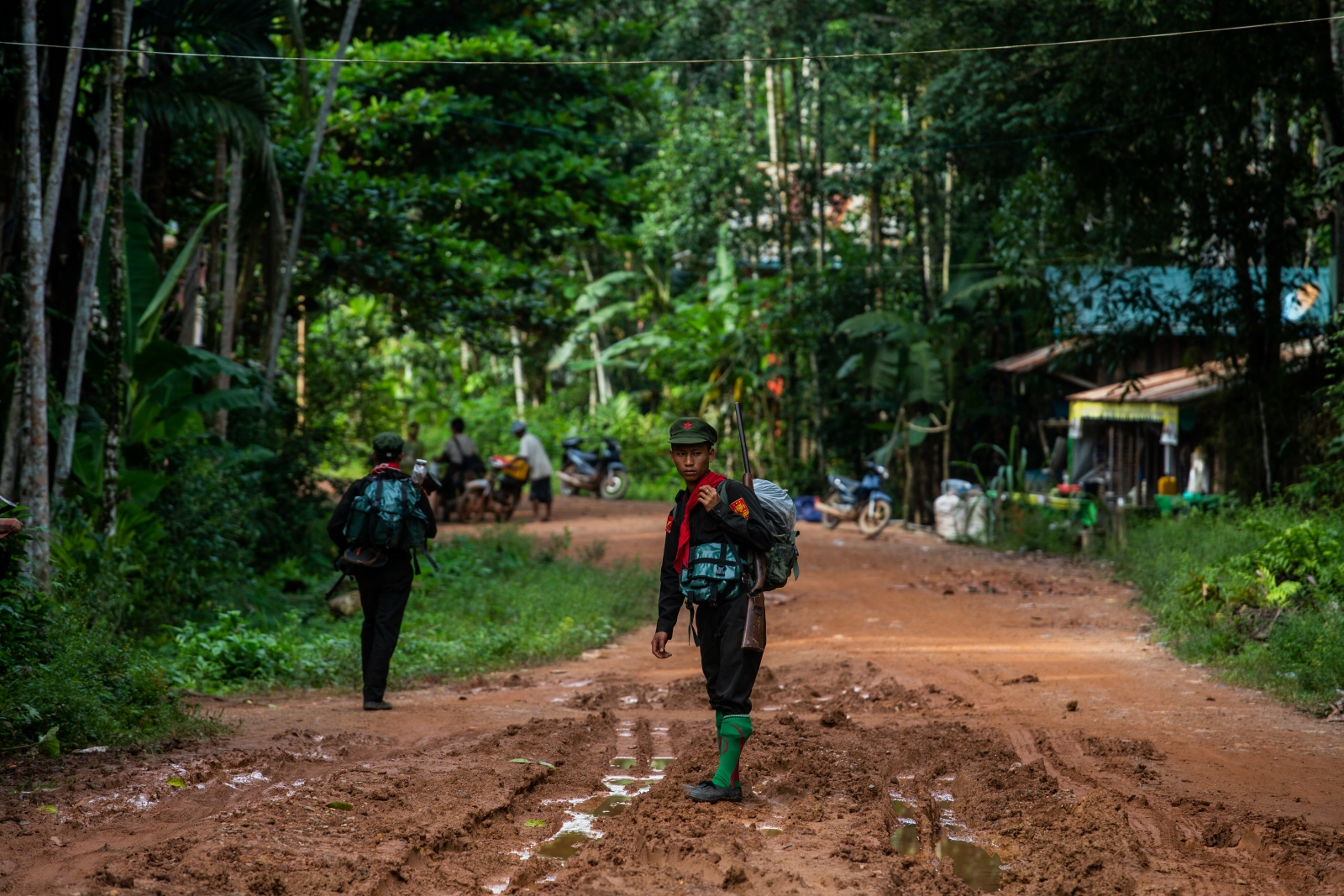A decision to strip the rich and powerful leader of the New Democratic Army-Kachin of his victory in last year’s election is a warning to all warlords that their days may soon be numbered.
By SITHU AUNG MYINT | FRONTIER
A NEW lawmaker was sworn in on September 14 to represent a Kachin State constituency in the Amyotha Hluttaw, Myanmar’s Upper House. The oath-swearing ceremony, 10 months after the November general election, followed a decision by the Union Election Commission to annul the victory of U Zakhung Ting Ying for breaches of election laws during campaigning. He was replaced by an independent candidate, U Yaw Na, who had come second, with 3,000 votes, to Zakhung Ting Ying’s 5,000.
Zakhung Ting Ying is a veteran warlord whose New Democratic Army-Kachin, a militia group, has dominated Kachin Special Region 1. The group’s domination of the region enabled Zakhung Ting Ying to become fabulously rich. Although officially an independent candidate, he won his seat in 2010 with the support of the junta after his militia became a Border Guard Force. Zakhung Ting Ying’s removal from his prestigious role as an MP is an interesting development that is worth examining more closely.
Kachin Special Region 1 in the northeast of the state borders China and its main tribal groups are the Lawor and Lacheik. Zakhung Ting Ying and his long-time colleague, U Layauk Zelun, are leaders of the Lawor and Lacheik, respectively. The pair were formerly commanders in the Kachin Independence Army but left it to unite with the forces of the Communist Party of Burma. As the leaders of CPB Force 101 they took part in battles against the Tatmadaw near the border with China.
The CPB (also often referred to as BCP or “white flag” communists) collapsed in 1989 when ethnic commanders mutinied. The Wa faction seized the party’s headquarters at Panghsang in northeastern Shan State in April that year.
Support more independent journalism like this. Sign up to be a Frontier member.
The mutiny had begun the previous month with the Kokang group and was also joined by the Mongla group. It resulted in the CPB’s leadership and its remaining troops seeking refuge in China. Zakhung Ting Ying invited the CPB forces to settle in his area and help fight the junta. In July 1989, the CPB remnants, with their weapons and ammunition, left their refuge in China and arrived in northeastern Kachin.
Less than six months later, Zakhung Ting Ying began secret negotiations with then Military Intelligence chief Lieutenant-General Khin Nyunt and the two sides signed a ceasefire in December 1989. This resulted in the BCP remnants having to leave Kachin Special Region 1 for China – but not before Zakhung Ting Ying took their weapons and ammunition, a move that significantly strengthened his forces.
After 1990, Zakhung Ting Ying became commander of the New Democratic Army-Kachin, the new name for the CPB’s Force 101. The warlord, who was involved in the timber business in his area, jade mining at Hpakant and Khamti, and ruby mining at Mogok, opened offices in Yingon and Mandalay. He became extremely wealthy.
It was not always easy for Zakhung Ting Ying to control his forces and protect his family’s business interests. There were failed attempts to oust him as leader of his militia in 1989, 1993 and 2005. After his long-time colleague Layauk Zelun was ousted in a mutiny, Zakhung Ting Ying became the only warlord in northeastern Kachin.
A challenge for retaining the loyalty of his forces was the decision to accept the junta’s proposal to turn his militia into a Border Guard Force and formally bring his forces under the control of the Tatmadaw. The NDA-K was the largest group to accept the military government’s BGF plan. However, it was opposed by many of his commanders and their troops, and most other ethnic armed groups, including the KIA and United Wa State Army, rejected becoming BGFs.
Zakhung Ting Ying used his relatives to exercise control over the NDA-K, enabling him to maintain his grip on power and continue running his businesses. As a reward for accepting the BGF plan the junta ensured he won the Amyotha Hluttaw seat of Kachin-5 in the 2010 election.
Zakhung Ting Ying’s fortunes began to change after the campaign for the 2015 election, in which he was accused of intimidating rival candidates. The victims of his misconduct complained to the UEC, which was revamped by the NLD after its election victory, and it rightly declared his election win null and void.
The change of power has also meant that Zakhung Ting Ying has lost the business privileges he enjoyed under the military-backed Union Solidarity and Development Party government.
Zakhung Ting Ying is the first warlord to fall victim to the blossoming of democracy in Myanmar. The beginning of the end of his power and influence is a warning to all warlords throughout the country.







